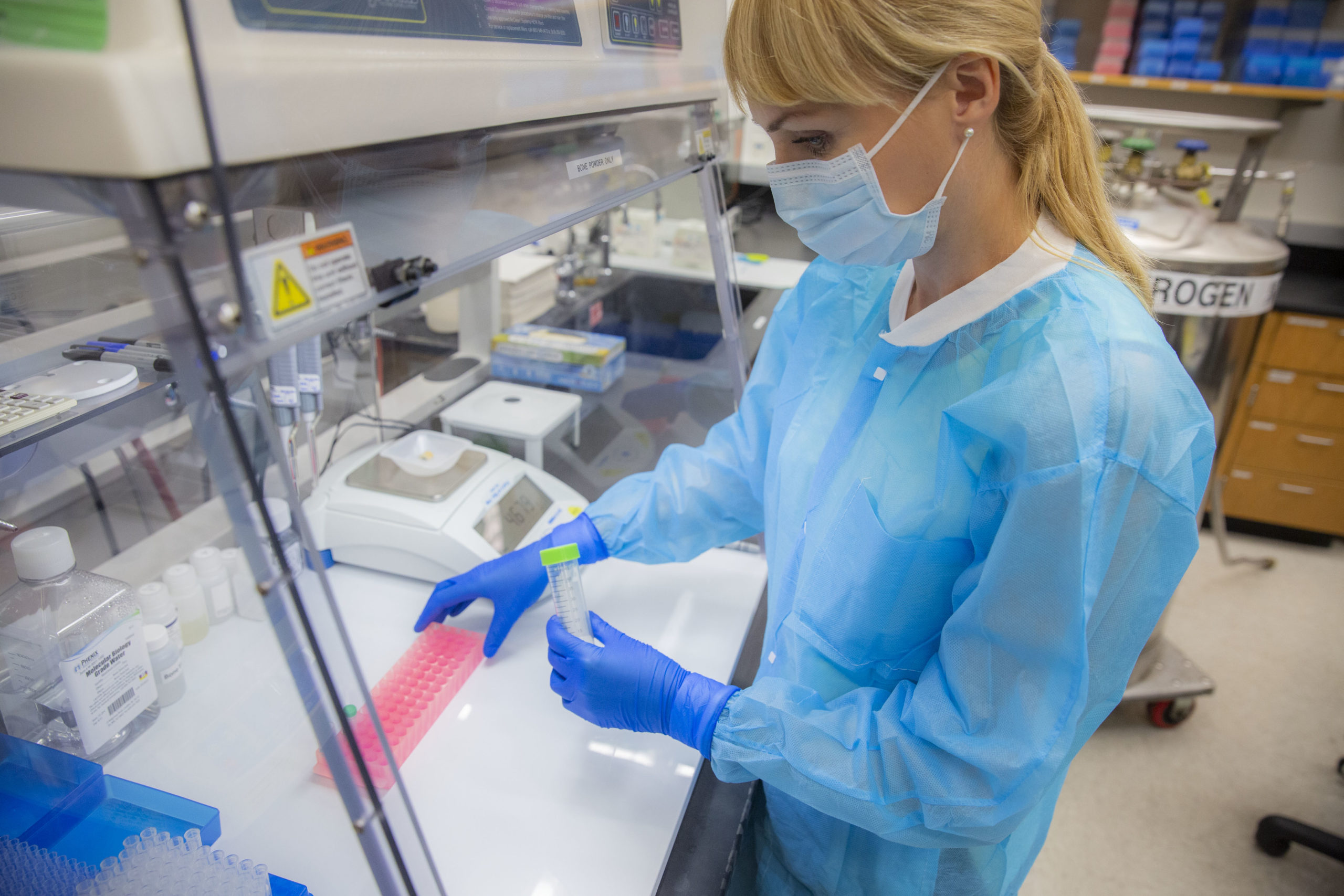
Research and Development
Michael Coble | CHI Executive Director
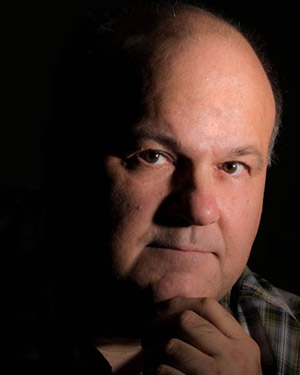
Dr. Michael (Mike) Coble earned his PhD in Genetics from The George Washington University in 2004. After receiving his doctorate, he was an NRC Postdoctoral Fellow and, later, a Research Biologist in the Biotechnology Division of the U.S. Department of Commerce's National Institute of Standards and Technology (NIST). He then spent four years as the Research Section Chief at the U.S. Department of Defense's Armed Forces DNA Identification Laboratory (AFDIL), where he assisted on numerous identifications, including the widely publicized positive identification of two of the children of Tsar Nicolas II and his wife Alexandra. After eight additional years as a Forensic Biologist for NIST, Dr. Coble joined the Center for Human Identification as Associate Director in 2018, and was appointed acting Executive Director on February 1, 2022.
Dr. Coble's research focuses on issues associated with DNA mixture interpretation and he, literally, wrote the book on probabilistic genotyping. Other areas of research include haploid marker systems for forensic testing (mitochondrial DNA and Y-chromosome testing), and non-traditional marker systems to gather genetic information from challenged and deteriorated samples (X-chromosomal STRs, insertion-delete markers, etc.).
While at CHI, Dr. Coble has been instrumental in furthering efforts to reduce human trafficking and identify missing persons by assisting on a grant from the U.S. State Department to train and outfit forensic labs in Central America. He has also assisted the Texas Department of Public Safety Forensic DNA Laboratory, providing analysts with supplemental training in likelihood ratios and probabilistic genotyping.
Dr. Coble serves as a commissioner for the Texas Forensic Science Commission and is a Fellow of the American Academy of Forensic Sciences. He is a member of the International Society of Forensic Genetics, an invited guest at the Scientific Working Group on DNA Analysis Methods (SWGDAM), and serves as an affiliate of the OSAC Human Biology Subcommittee.
https://experts.unthsc.edu/en/persons/michael-coble
August Woerner | Assistant Professor
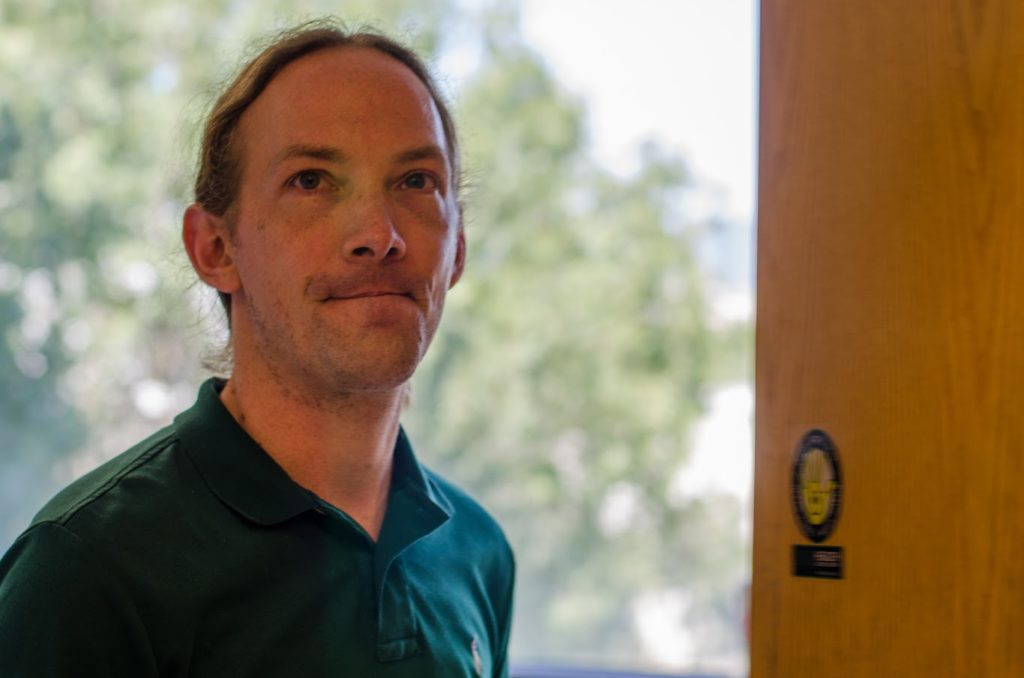
Dr. August Woerner received his PhD in Genetics from the University of Arizona in 2016, and has a PhD minor and M.S. in Computer Science (CS) from the same institution. August worked for a dozen years as the lead bioinformaticist in Dr. Michael Hammer's population genetics/genomics research group, all whilst completing undergraduate and graduate CS coursework. August considers himself to be a biologist who codes (instead of a computer scientist who interacts with biology). In general, he is interested in practical solutions to open problems in multi-omics, genomics, and forensic genetics. August has many research interests that vary from better computational approaches, to read mapping and DNA sequence alignment, to the application of machine learning models to make better predictions from the genome, as well as like models that reduce the appearance of noise in such systems.
August also cares deeply about fostering and teaching computational techniques to the next generation of biologists. Biologists are becoming ever-forced into handling, interpreting and understanding large datasets. Working with big data is challenging (as a matter of both practice and principle). He is an open proponent of borrowing from techniques in data science, especially data science as found in Hadley Wickham's tidyverse (https://www.tidyverse.org/), to make big data more tractable. With such approaches, rather than spending years honing one's computational and programming skills, less effort can be spent to obtain results that are correct (easy to say, hard to do), that scale to "big data", and are reproducible. While the theoretical ceiling of such approaches can be limited, the immediate benefits (a few months of training to get ~80% of what a proper undergraduate and graduate degree in CS might give) make for an excellent tradeoff between investment (time) and reward (real insight into one's experiment).
August also has open interests in purely computational problems, such as techniques for context-specific alignment (read-mapping), machine learning and introducing machine learning techniques that apply to datasets that are not "rectangular" and perhaps are even non-numeric (i.e., to data that are opaque).
https://experts.unthsc.edu/en/persons/august-woerner
Jennifer Churchill Cihlar | Assistant Professor
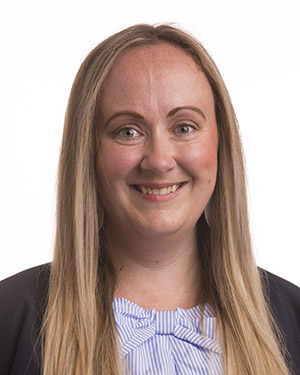
Jennifer received her Bachelor of Science degree in Biochemistry from Texas A&M University. Her undergraduate research at Texas A&M involved the application of molecular genetic technologies to the study of population and conservation genetics of the North American bison. Jennifer earned her PhD in Biomedical Sciences, specializing in Human and Molecular Genetics, at the University of Texas MD Anderson Cancer Center UT Health College of Biomedical and Translational Sciences. Her dissertation work focused predominantly on the use of linkage and next-generation sequencing technologies to identify novel autosomal dominant Retinitis Pigmentosa genes.
Jennifer currently works with the Research and Development Unit at HSC's Center for Human Identification. Her research focuses on the development and application of human identification genetic marker analyses with massively parallel sequencing technologies, including the validation and implementation of massively parallel sequencing for mitochondrial DNA analysis into CHI's Missing Persons Unit.
https://experts.unthsc.edu/en/persons/jennifer-cihlar
Benjamin Crysup | Research Assistant Professor

Benjamin Crysup obtained BS degrees in Chemical Engineering and Computer Science at the University of Texas. He then followed them up with a PhD in Scientific Computation from Florida State University, by doing methods development to speed up molecular dynamics simulations. Being a computational chemist might make him the odd man out in the lab, but a collection of interesting computational questions both draws his interest and leverages his talents. When he's not coding, he's writing, running, making mead/melomel, or working on one of his many side projects.
Xuewen Wang | Research Scientist
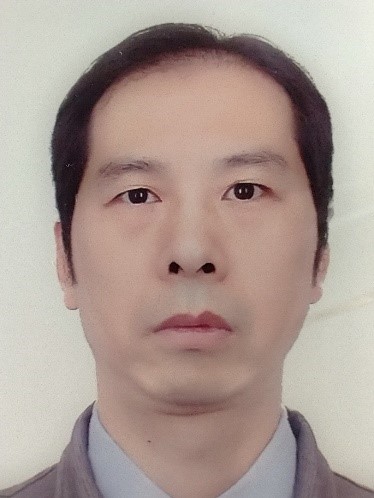
Xuewen Wang received his Ph.D in Molecular Genetics from King's College London, University of London, United Kingdom, and obtained his Master's and Bachelor's degrees from College of Life Science at Peking University, China. He then conducted post-doctoral research at the University of Georgia. He worked as a leading scientist and leader of the China Tobacco Gene Center for National Tobacco Genome Project, a principle investigator at the Chinese Academy of Science, and later worked at an adjunct position with the University of Georgia and US Department of Agriculture for Genomics and Bioinformatics Research Service. He joined the Center of Human Identification at UNTHSC in June of 2021.
Dr. Wang's research focuses on bioinformatics and genomics at a large data scale with high performance computing facilities. He has rich experiences in next generation (2nd e.g. Illumina and 3rd, e.g. PacBio) sequencing (NGS) data analysis, especially for genome assembly, graph pan-genome, variants discovery, sequence comparison, population or single cell genomics, gene-trait associate, and integrated omics analysis of transcriptomes and metabolomes. He also developed many bioinformatic pipelines and several novel bioinformatic software, e.g. GMATA, to facilitate NGS data analysis and applied genomics. He has published more than 50 high impact research articles at Nature Biotech and Nature Communications etc., and his articles have been cited worldwide. He serves as an active reviewer and editor of more than 50 peer-reviewed academic journals.
He is currently working on projects that apply state-of-art technologies in bioinformatics and genomics to develop novel software and technology, to advance the research and service in human DNA identification with high-throughput sequencing, and to solve challenging problems in forensic science.
Meng Huang | Research Scientist
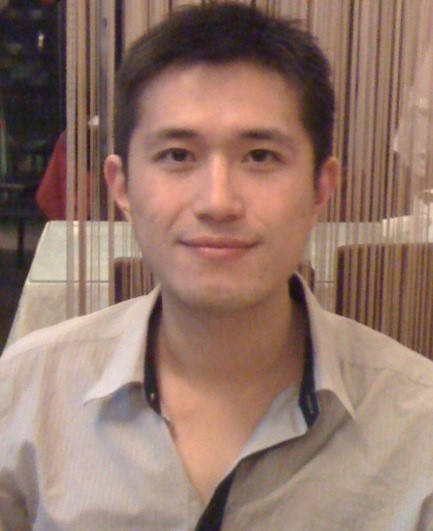
Meng Huang is a Quantitative Genetics Scientist with experience in the research fields of human genetics, animal breeding, and plant breeding. His research interests focus on the development of novel statistical analysis software, parallel computing, and big dataset analysis.
Jonathan King | Research Laboratory Director

Jonathan King is originally from North Carolina, but has lived in Texas long enough to be considered a naturalized Texan. He received his MS from Tarleton State University in 2009 with a research focus in capturing novel polymorphic InDels from agricultural pathogens. He has been the laboratory manager for the research and development lab since March 2011. Jonathan currently serves on the ISFG-recognized scientific working group (STRAND) and the editorial board of Forensic Science International: Reports. Jonathan's current research projects include bioinformatics, massively parallel sequencing, small amplicon markers, mitochondrial DNA sequencing, microbial forensics, and molecular medicine, just to name a few. When he is not working, Jonathan enjoys photography, gardening, and the culinary arts.

Melissa Muenzler | Senior Research Associate
Melissa is originally from Austin, TX, and received her BS in Biology from Texas Tech University. She has no free time, due to her three children, but can quote the entirety of all four Toy Story movies. She enjoys working at the lab bench and takes great joy in a well-prepared library.
Briana Smith | Senior Research Associate

Jessica Broner | Research Associate
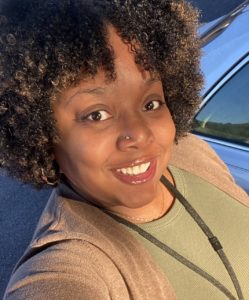
Jessica Broner received her MS in Pharmaceutical Science with a concentration in Forensic DNA and Serology from the University of Florida and received her BS in Biology from the University of Arkansas at Little Rock. She is originally from North Little Rock, Arkansas. Her research interests include forensic biology testing techniques dealing with degraded samples, next-generation sequencing, and low-copy number typing and applications. In her free time, she enjoys reading mystery novels, watching anime, attending concerts, traveling, and spending time with her family.
Contact Us
Location
- Center for Human Identification
- CBH, 6th Floor | 3400 Camp Bowie Boulevard | Fort Worth, TX 76107
- Local Number: 817-735-5175 | Fax: 817-735-0553 | Toll-Free: 1-800-763-3147 | Toll-Free Fax: 1-800-221-3515

